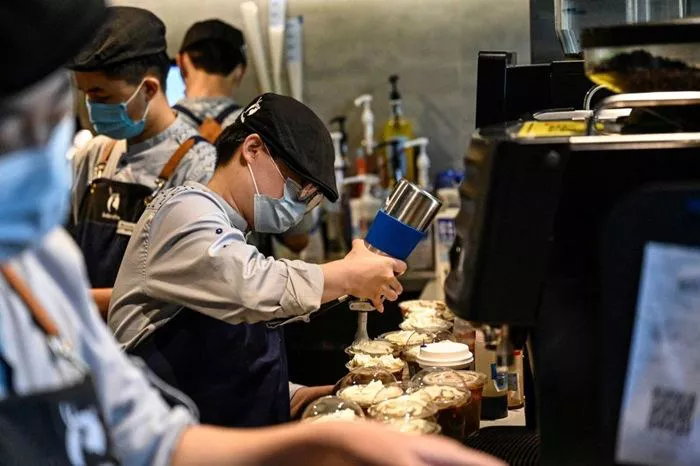China’s coffee imports have surged, driven by a burgeoning middle class and increased interest in Western beverages. In the first half of the year, imports of coffee, tea, and spices reached 8.78 billion yuan ($1.22 billion), up 32.5 percent from last year.
Jiangsu Province leads in coffee imports, totaling 1.45 billion yuan—a 366 percent increase. Nearly 90 percent of these imports are raw coffee beans.
Wang Rui from Suzhou Sudou International Trade Co. attributes this rise to urbanization and shifting consumer preferences. The company has expanded its coffee bean sources beyond traditional suppliers to include countries like Vietnam and Indonesia.
Jiangsu AMP Supply Chain Management Co. has seen its green coffee bean storage rise from less than 5 percent of business in 2020 to nearly 40 percent this year.
The coffee culture is also expanding rapidly, with chains like Blue Bottle Coffee opening new locations in major cities. E-commerce platforms are boosting coffee sales and diversity, with consumers increasingly seeking specialty and premium blends.
Global demand for coffee is spurring innovation among manufacturers. Ningbo Borine Electric Appliance Co. is investing in advanced brewing technology to stay competitive, despite higher costs compared to international rivals.

